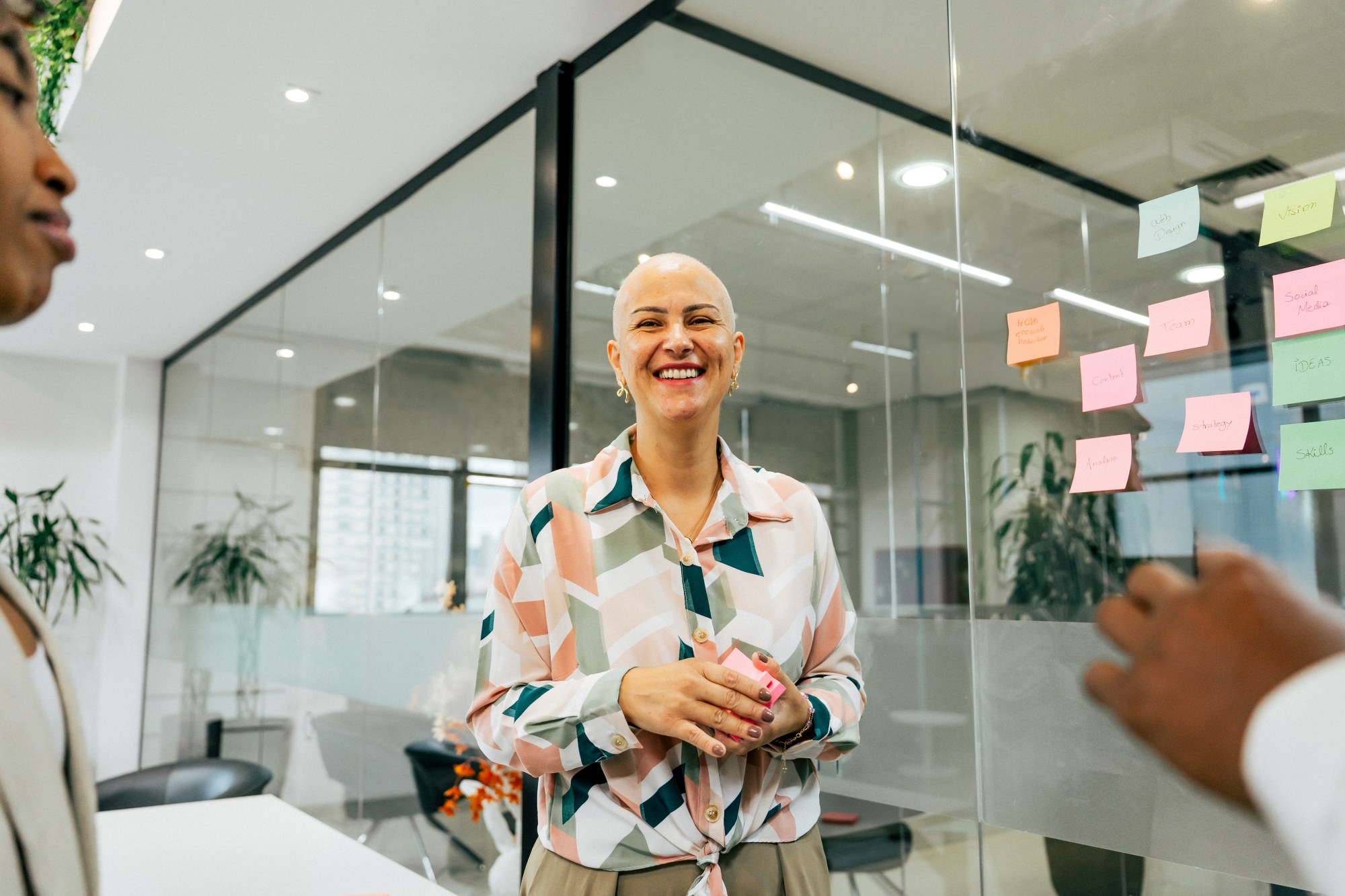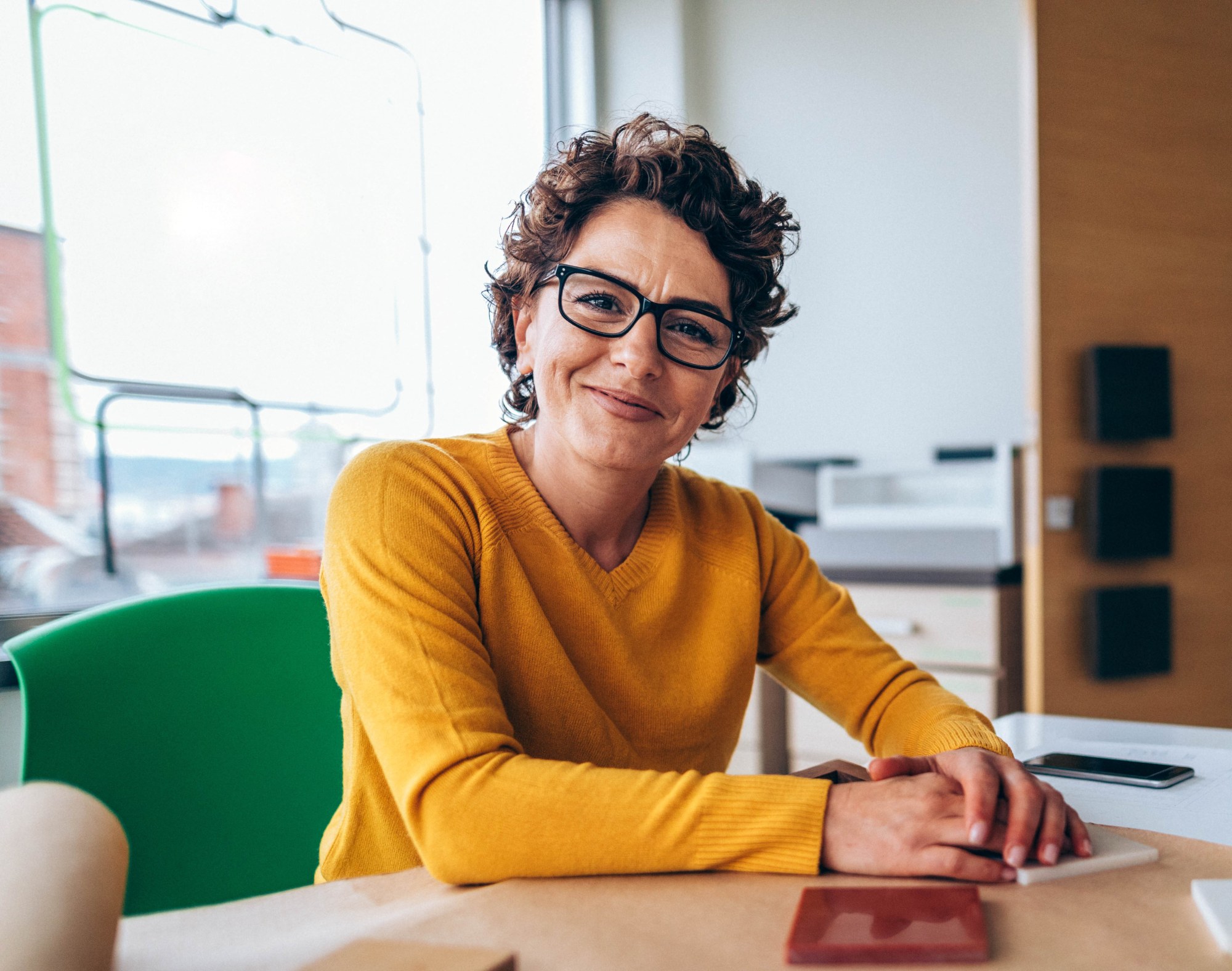Cancer—and survivorship rates—are rising worldwide, calling on employers to turn their attention toward how they can create a safe and sustainable path back to work.
For it’s not one-size-fits-all; every cancer journey is different and requires an individualized approach to ensure optimal functioning and lasting wellbeing—in the workplace and across all areas of life. The Cancer Care Compass program by Workplace Options was built with this truth in mind—delivering holistic, human-centered support that considers each person’s unique situation, strengths, needs, and goals to facilitate a meaningful and manageable return to work and life.
At the heart of the program is the Cancer Care Coordinator—a single, clinically trained professional who walks alongside each employee throughout their cancer journey, providing support that is both clinically sound and personally empowering. To ensure both clinical rigor and emotional and vocational alignment, each coordinator is trained by leading experts in oncology and psychiatric rehabilitation: Dr. Veronica Carey, CPRP, CDE®, and Dr. Deborah Mukherji, MBBS, FRCP (read more about their backgrounds below).
In a new episode of Wellbeing at Work, a Workplace Options Podcast, Vice President and General Manager of Emerging Solutions Sarah Wood sits down with Dr. Carey and Dr. Mukherji to discuss what makes the program—and its coordinator training—so unique, and the impact its already having in workplaces around the world.
The full episode can be streamed now on Apple Podcasts, Spotify, YouTube, or on the WPO website.
Below is a brief excerpt from their insightful discussion:
Sarah:
Now, we’ve touched a little bit on the Cancer Care Coordinator, which is really one of the things that we’re here to talk about most today: the core of the Cancer Care Compass program. The coordinator is a master’s level clinician who has received this additional training from Dr. Veronica [Carey] and Dr. Deborah [Mukherji] to really be able to offer this broad support, help navigate fragmented resources, and serve as that one trusted source for continuous, comprehensive care.
Dr. Veronica and Dr. Deborah, I was wondering if you could tell us about what you see as the major responsibilities of the Cancer Care Coordinator when working with an individual with cancer?
Dr. Deborah:
I’ll start just by saying that it was really an eye opener for me, actually, being involved in this training [and working with] coordinators coming from many different and diverse parts of the world, [as] they brought with them their experience and their cultural knowledge of the meaning and implications this diagnosis has in their communities —and the challenges individuals might face in expressing them.
So, having those coordinators embedded in the program from different parts of the world and discussing what cancer means to them was really the beginning of our discussion and our training. And then, of course, we can’t teach anyone every single thing about different types of cancer—but the main focus from my point of view was to help the Cancer Care Coordinators appreciate how we must ask the right questions—that they must ask the right questions and their clients must ask the right questions to get all the information that’s going to facilitate their individual recovery plan and their individual work reintegration plan.
Dr. Veronica:
Just to add to that, we are also emphasizing that the client doesn’t have to be perfect to go back to work. As an outcome of cancer, maybe they’re utilizing an accommodation or maybe there’s a medication regimen that they’re going to have to follow while at work. So, they might not be symptom-free—and that’s okay. It’s a “new normal,” right?
People often say, “returning to,” and that’s not always going to be the case. Sometimes, it’s a new normal that the person is going to have to enter into. How is this new normal going to facilitate or impact the return to work and the individual’s ability to function at work?
That’s where the Cancer Care Coordinator comes in to help ease that shoulder-up moment of anxiety where someone’s wondering, ‘Can I do it?’ Yes, you can do it, but let’s define how that’s going to look. Let’s define how it looks now. It may not look like it did a few weeks ago.
Sarah:
Yeah, I think that’s a great point.
What we’re also seeing through the program is that many people haven’t taken a leave from work—or won’t be taking one at all. So, it’s really about discussing, ‘What can I do?’ ‘What am I still capable of?’ ‘How can I advocate for myself at work, and make sure my needs are known?’ So, it’s not as simple as taking a leave from work to get treatment; it may also be working through treatment and adjusting.
Dr. Veronica:
Right.
And the clinical coordinators were also exposed to a theory by Malcom Knowles that talks about andragogy. Usually, individuals are familiar with a pedagogical posture, but once people reach adulthood, Malcom Knowles talks about how andragogy says you have to involve the adult in that process [of learning].
That means the clinical coordinator should be asking a lot of questions so they can facilitate what is necessary. They shouldn’t be making assumptions. They can’t impress upon [the client] what they want them to do if the client doesn’t want to do that. Instead, the andragogical approach says: listen to the lived experience, ask questions, be supportive, and then create that readiness to learn that we mentioned earlier.
Because that new normal is not something the person’s envisioned. They had an old normal—a prior-to-cancer normal—and now they’re entering something unfamiliar. That new normal can be incredible if the clinical coordinator approaches it with hope.
And like we talked about, I call this the F-word: functioning in the community. That’s the goal. The clinical coordinator wants the individual to be successful when they’re not around. And the approaches we’re talking about today—and the ones the coordinators were trained in—are designed to help that person succeed when the coordinator is no longer there.
Dr. Deborah:
Absolutely.
And it’s not just the individual client, but it’s the whole of their working environment—their manager, peers—that also need support and need to know how this particular situation should be approached and how to support that individual in the best way possible.
If we truly value everyone’s contribution in the workplace, we can also recognize that someone going through serious illness and treatment may bring even more valuable insights when they return. Many of my patients tell me that cancer actually gave them something. It gave them a different perspective; it gave them a different drive. So, these are very valuable things to reflect back on the managers and the teams that these can be integrated in a very clear and positive way for everyone.
Sarah:
That’s fantastic, thank you both for sharing.
Now, I see the way that you two work together here just speaking on the podcast, but I’m curious: how were you able to weave together psychiatric rehabilitation and clinical support in a way that supports the whole person as you were delivering the training to our Cancer Care Coordinators?
Dr. Veronica:
Now, isn’t that a great question?…
Like what you heard?
Listen to the full episode now on Apple Podcasts, Spotify, YouTube, or here to catch the rest of their eye-opening conversation.
About the Experts:

Veronica Carey, PhD, CPRP, CDE®
Associate Dean for Culture, Climate and Belonging at Drexel University and Chair of the Academy for Psychiatric Rehabilitation Association (PRA)
Dr. Carey has been an academic for 22 years and currently serves as the Assistant Dean for Diversity, Equity, and Inclusion, as well as the Chair of the Board of Diversity, Equity, and Inclusion at Drexel University’s College of Nursing and Health Professions. She holds the position of Associate Clinical Professor in the Human Development and Counseling Department and is a certified diversity executive. Dr. Carey is also the Chair of the Academy for Psychiatric Rehabilitation Association, a certified psychiatric rehabilitation specialist, and the Vice President of Caravan of Life, a behavioral health NGO in Pakistan.

Deborah Mukherji, MD, MBBS, FRCP
Medical Oncologist at Clemenceau Medical Center Dubai
Dr. Mukherji completed her advanced specialty training in Medical Oncology at Guys and St Thomas’s NHS Foundation Trust, London UK and was awarded a Post-Graduate Diploma in Oncology from the Institute of Cancer Research, University of London in 2011. On completion of her specialty training Dr Mukherji joined the Royal Marsden Hospital London where she worked in clinical research and drug development. In June 2015 Dr Mukherji was awarded a post-graduate diploma in Global Clinical Research from Harvard Medical School supported by a scholarship from the Dubai-Harvard Foundation. In June 2016 Dr Mukherji was elected as a Fellow of the Royal College of Physicians UK. She is currently a consultant medical oncologist at the Clemenceau Medical Center Dubai, UAE.









































